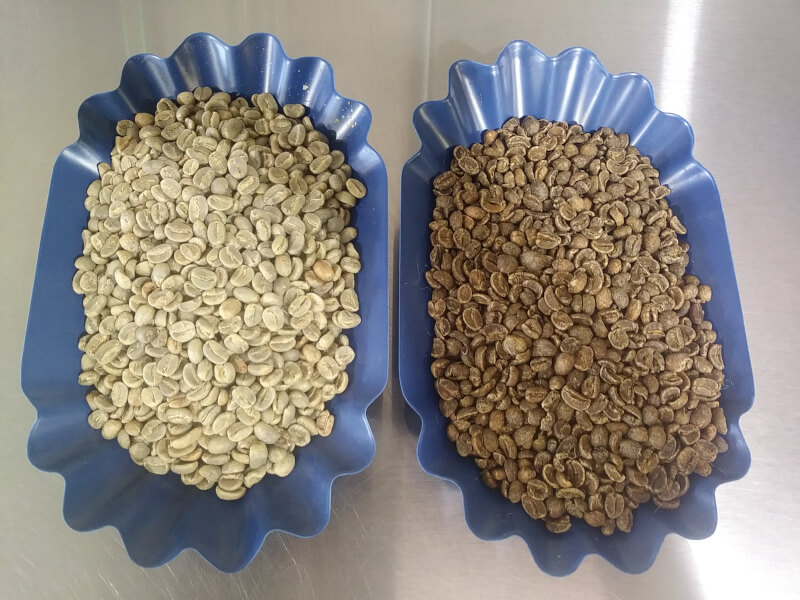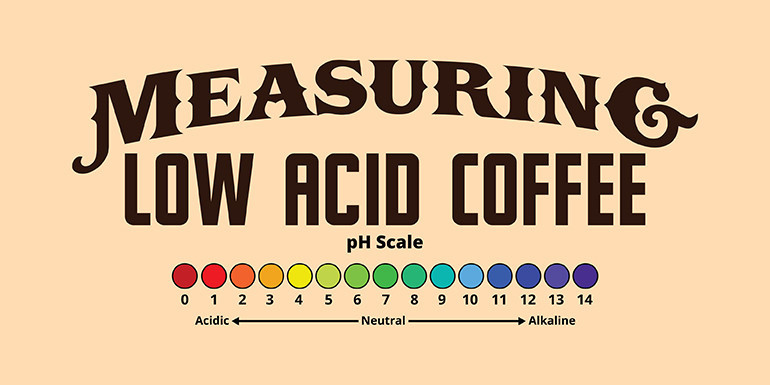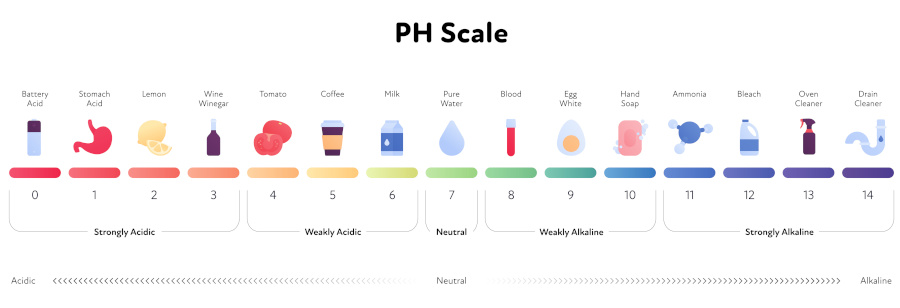
Spilling The Beans On Coffee And IBS
Spilling The Beans On Coffee And IBS
If you're one of the many coffee drinkers who suffer from Irritable Bowel Syndrome, you may be wondering if there's any way to enjoy your favorite beverage without experiencing discomfort. Believe it or not, there are some great solutions. In this post, I will "spill the beans" on coffee and IBS, and share more than just some tips for enjoying your morning cup without any stomach upset. I will be giving you the information and tools you need to find the coffee that is right for you. So whether you're looking for ways to adjust your coffee routine or just want to know that you're not alone, keep reading for all the details.
What's the problem?
Coffee intake for people suffering from food related gastrointestinal symptoms can exacerbate abdominal pain, stomach pain, and worsen Irritable Bowel Syndrome (IBS) and IBS symptoms. For many IBS sufferers, the acidic content of coffee beans can make symptoms worse and for others, caffeine intake can trigger symptoms. Managing acidity and caffeine intake can make all the difference with IBS symptom control.
How it works
For many people, coffee and gastrointestinal function are related in a negative way. Coffee consumption can affect your entire digestive system; from the Gastroesophageal to gastrointestinal (GI) tract. Coffee acidity can stimulate gastric acid production, cause digestive symptoms, and other problems which lead to abdominal pain or abdominal cramps and worsen IBS symptoms. The effect of coffee is not limited to only acidity but caffeine as well, which can trigger symptoms for IBS sufferers.
Remembering this is a coffee blog we will not be talking about bowel movement, constipation predominant IBS, distal colon function. We will stop it right there.
You all know your various situations, whatever it is and the severity of the situation you experience. There is no need in me telling you things you already know. Plus, I am not a doctor, my near 20 years of expertise is in the coffee industry, working on the production side of less acidic coffee since 2004.
Great Solutions Exist
The good news is there are very good solutions to help improve IBS symptom control and mitigate against IBS symptoms. Low acid coffee and decaffeinated coffee that is also low in acid are two great solutions.
However, "buyer beware" as many companies and fly-by-nights have jumped on this growing market segment and, as you can imagine, not everything that is sold as less acidic is not really low acid and most of those coffee offerings are borderline at best. It's one thing to be taken for $20, but its another to be left suffering and in pain with a coffee that is "all hat and no cattle."
Instant Coffee
First, if you drink instant coffees, I would recommend that you throw them in the trash. The vast majority of instant coffee is made with Robusta coffee. Robusta coffee has a much higher incidence of organic compounds such as Chlorogenic, Malic, Citric , Quinic , and Phosphoric acids.
Secondly, Robusta coffee has nearly one and a half times more caffeine than Arabica coffee. To be sure, Arabica coffee is still a highly acidic food and has high caffeine content, but not to the same level. Plus, Robusta coffee has a very poor aroma and the taste is very substandard.
However, while not as prevalent as in Robusta coffee beans, these acidic compounds are also found in all Arabica beans. Arabica coffee is still among one of many acidic foods.
Coffee affects more than IBS
By the way, acidity and caffeine don't just affect coffee drinkers with IBS, those that suffer with GERD and other gastrointestinal or gastroesophageal conditions can be affected by the acid and caffeine in coffee as well.
The most commonly discussed component for IBS symptoms is the acidic nature of coffee. However, in some cases the coffee bean can have a two fold problem, which is the inherent acidity in coffee and the concentrated amounts of caffeine that is naturally present in coffee beans. Ground coffee or whole beans makes no difference.
Addressing the acid: Common tips and mixed results
There are numerous ways to address coffees acidity. Unfortunately, many have mild effects, and some might moderately affect the acidity, only a few will have a significant impact. Let's look at the common tips you see on the internet and then we will look at some real solid options.
Brewing
Much is written about the effects of Cold Brew coffee on acidity levels. While it's true cold brewing coffee can reduce a coffees acidity, for many it will not be a silver bullet, plus it takes time, is a hassle, and you have to like to drink cold coffee. There is a better option.
Additives to your coffee
Some people add various "things" to their coffee. Salt, sugar, baking soda, soy, almond milk, lactose free creamers, and the list goes on. If that works for you, more power to you.
Regular milk
When drinking coffee many people like to add cow's milk to cut the acidity and bitterness and sweeten the coffee. However, lactose, which is found in milk and other dairy products can present its own problems to gastrointestinal function or to lactose allergies.
Milk Substitutes
Milk substitutes and non dairy creamers might be an option for some. Those can involve sugars, or artificial sweeteners. Some people with IBS may also have allergies to nuts or soy, affecting consumption of Almond milk or soy milk. If it's not one thing it's another. While you may show symptom improvement on the one hand, you might add to your symptoms elsewhere.
However, I suspect none of that works for you otherwise why are you spending your valuable time reading this article. The good news is there is a much more simple approach, its slow roasted low acid coffee.
Roasting
Low acid coffee is coffee that is low in chlorogenic acid. For more details read my article what is low acid coffee.
When searching for a low acid coffee, look for slow roasted coffees. Slow roasting is the most effective and the only 100% all natural means to significantly reduce coffees acidity. Slow roasting coffee dramatically reduces CGA levels in coffee by application time and temperature. Slow roasted low acid coffees have a rich, natural coffee flavor and it eliminates the bitterness.
Plus, you can drink your coffee hot or cold and even drink it straight black, regardless of how the coffees are prepared. Moreover, unless you're married to all the trimmings, most people find that it makes a great hot brewed coffee. Yes, it's great for cold brew as well.
While dramatically reducing CGA and acidity levels work for many IBS sufferers, caffeinated coffee can still worsen IBS symptoms for those that also need to reduce their caffeine intake. Now let's look at decaf coffee.
Decaffeinated coffee: IBS and caffeine intake
For some IBS sufferers, too much caffeine is a major problem and they need to reduce caffeine intake. The good news is food science has come a long way, we know much about the chemical composition of coffee beans; their organic acid compounds, amino acids, cellulose, and polysaccharides.
The decaffeination process of coffee has advanced as well. The most popular commercial method of decaffeination uses methyl chloride. However there are now options, the water based decaf methods are all natural and use water as the active agent, not chemical compounds to remove caffeine. These water processed decafs are now readily available on the market. For more in-depth information, see my post Water process decafs: Swiss Water or Mountain Water.

So, when searching for a decaf coffee, look for a chemical free water based decaf. Swiss Water Process (SWP) or Mountain Water Process (MWP) based decaffeinated coffees are the best choices. Here are few highlights that they both share:
-
Water decaf process is better than 99% effective.
-
No solvent residual flavors.
-
100% chemical free and can be certified organic.
-
Not harmful to humans.
-
Has a neutral affect on taste
Each of these water based decafs have a residual caffeine content of 1% or less. For IBS sufferers with various IBS symptoms that are directly related to caffeine content, water based decafs can be a great solution. Plus, you can rest easier knowing your coffee was not decaffeinated with a solvent (Methyl Chloride (CH3Cl) also known as the chloromethane.)
Slow roasted low acid decaf coffee
If you have irritable bowel syndrome, and suffer from coffee related IBS symptoms, you should consider the following.
-
Eliminate instant coffee
-
Choose an Arabica coffee
-
Choose a low acid coffee that is slow roasted
-
If you need a decaf, select a water processed decaf; either Swiss water or Mountain water.
Managing food intolerance towards coffee will give you the best path to finding the coffee that will not only work for you, but you will enjoy drinking.

Low Acid Coffee tool.
I also wanted to give you a tool to make your selection of coffee as easy as possible. Look for the pH score. I write about the pH scoring on the pH scale in my various posts. If you remember from school, the pH level measures whether a liquid is basic or acidic. See post measuring low acid coffee for more explanation.
If a coffee does not have a pH score of 5.5 or better avoid it (higher the better).

However, any true low acid coffee brands should have much less acidity in most cases removing over 90% of acidity with pH score exceeding 6. And do not forget about the caffeine, while this is an issue for some with IBS, for most others it is not.
Frequently Asked Questions
Does caffeine irritate IBS?
Caffeine can induce intestinal irritation resulting in diarrhea like many other beverages. Coffee and other foods containing caffeine have a negative effect on people with IBS.
Is coffee OK on IBS diet?
Yes, for any food intolerance dietary management is essential. Coffee's inherent acidity and high caffeine content can be mitigated and eliminated. Slow roasted low acid coffees and water processed slow roasted low decaf coffees are a perfect solution for IBS sufferers.
Can you drink decaf coffee with IBS?
Yes, eliminating caffeine intake maybe a key factor for many that suffer with Irritable Bowel Syndrome (IBS), as caffeine can worsen IBS symptoms for IBS patients. Water processed decafs are a great option. People with IBS still need to be careful of coffees acidity should find a slow roasted low acid coffee.
I hope this information was helpful to you. Want to try a Mavericks slow roasted low acid coffee. Here is a coupon for free shipping: shipmefree
We also have great slow roasted water based decafs coffees as well. All made with 100% organic ingredients.
-Ryan